Antioch College Presidents
Antioch College’s educational innovations have been developed and shepherded over generations by many forward-looking presidents throughout its history. Antioch’s first president, the famed American educational reformer and abolitionist Horace Mann, sought to traverse the norms and boundaries then current in higher education to create something new. It was “a chance,” Mann wrote to a friend, “for a college never seen before.” This page documents the leaders who followed in Mann’s footsteps to carry forward the to continually develop a new kind of college: a College of Action.
Independent Antioch College
Jane K. Fernandes
 President 2021–present
President 2021–present
Dr. Jane K. Fernandes is the third President of the Newly Independent Antioch College. A native of Worcester, Massachusetts, she received a bachelor’s in French from Trinity College. She earned a master’s and doctorate in Comparative Literature from The University of Iowa. Dr. Fernandes has three decades of experience in higher education, including seven years as president of Guilford College in Greensboro, North Carolina, where she was also a tenured member of the faculty. She has provided senior leadership and has held tenured faculty positions at other distinguished higher education institutions, including UNC Asheville, and Gallaudet University. She has dedicated her career to making educational excellence accessible to all students by welcoming the fantastic range of human diversity to campus, including every voice in decision-making, and providing support, accommodations, and reparations to achieve equitable education through differences. She knows we learn more about ourselves in a rich environment open to everyone and works to ensure that no one is so defined by their circumstances as to be denied the options and space needed to explore and find their authentic selves.
Tom Manley
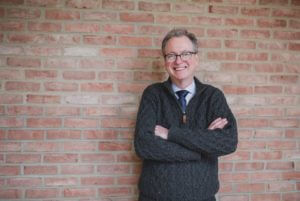
Dr. Manley was named president in November 2015 after a national search by the Board of Trustees. He started his tenure on March 1, 2016 after serving as president of Pacific Northwest College of Art in Portland, Oregon, for 12 years and in various teaching and administrative posts at Pitzer College in Claremont, California, for 23 years prior to that.
With a background in East Asian history and culture; expertise in intercultural education, community-based learning, and educational program development; and success as a fundraiser, Dr. Manley has brought a wealth of experience to Antioch. His tenure at the College focused on a broad range of challenges related to institutional vision building, budget alignment, diversity and inclusion, enrollment and campus climate, fund and friend-raising, administrative restructuring, and governance.
Under his guidance, Antioch articulated its distinctive vision for a new kind of college—a college of action—where students own their education, learn experientially, and act for justice. To provide that maximum agency to students and to address to the pressing realities of small colleges, he supported a faculty-led reworking of the curriculum and academic calendar, and worked with the community and Board to increase and strengthen shared governance (including the addition of students and staff to the Board of Trustees and giving all stakeholders the power to vote). During his presidency, diversity in the administration and on the Board has increased, and, despite budget reductions, positions to better support diversity, equity, and inclusion programming have been created.
Dr. Manley also advocated for the return of the Community Manager position—a role which was critical to the execution of Antioch’s community governance model for decades—which will be reinstated effective August 10. He also oversaw fundraising efforts to raise nearly $50 million over in four and a half years.
Dr. Manley is a champion of the notion of college and university campuses as anchors of resilience for their communities.
Mark Roosevelt
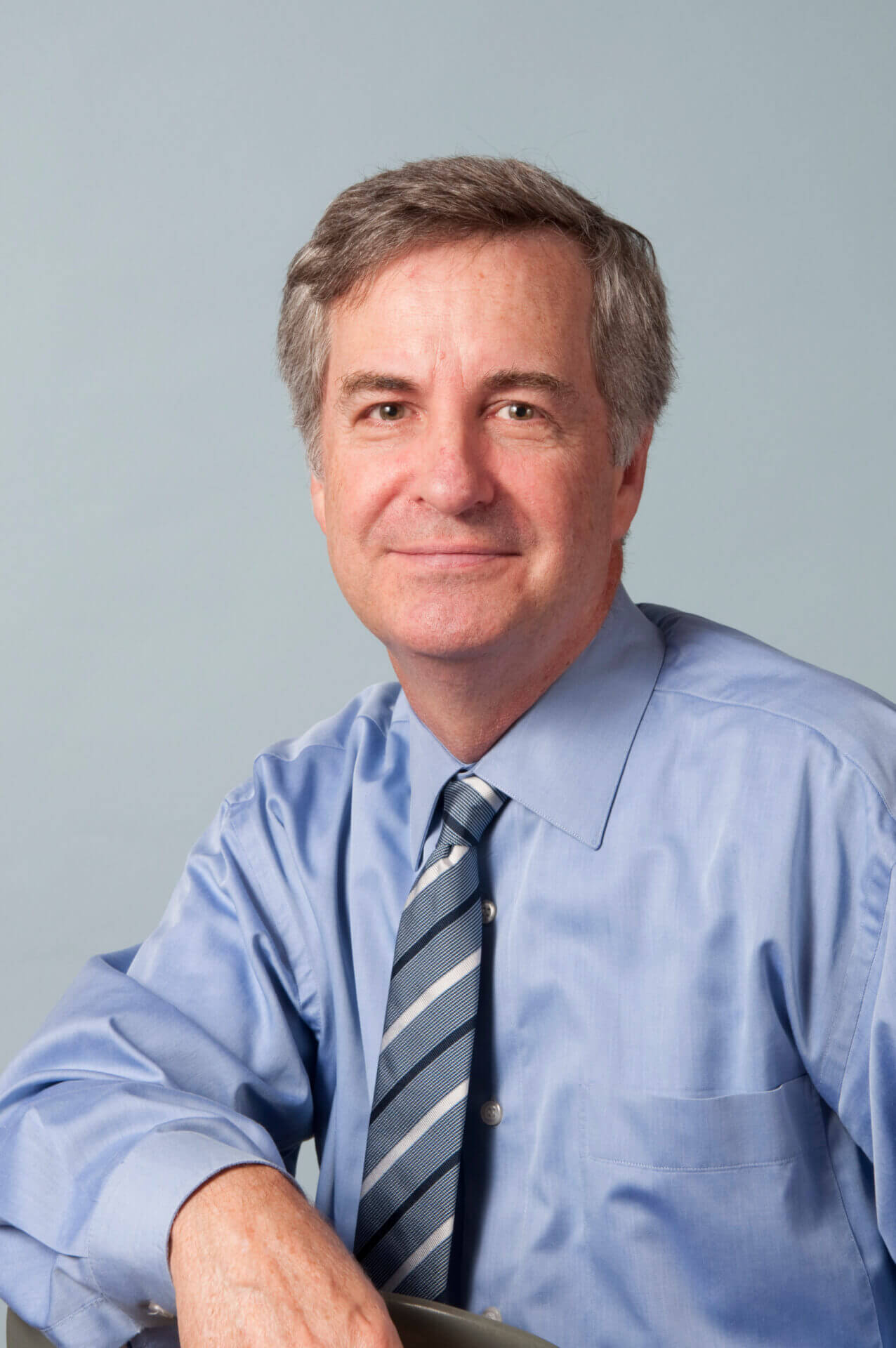 President 2011–2015
President 2011–2015
Mark Roosevelt holds bachelor’s and law degrees from Harvard University and is a graduate of the Broad Urban Superintendent’s Academy. He has taught political science at Brandeis University, where he was also the director of the Gordon Public Policy Center, and he taught a course on the intersection of American history and public policy at Carnegie Mellon University’s Heinz Graduate School of Public Policy.
As a Massachusetts state representative, he chaired the Education Committee, where he guided passage of the Education Reform Act of 1993, legislation providing the equitable resources and accountability measures necessary for school improvement. He was also the lead sponsor of the 1989 Massachusetts Gay Rights Bill. In 1994,Roosevelt was the Democratic nominee for governor of Massachusetts.
For a five-year period beginning in 2005, he served as superintendent of the Pittsburgh Schools. There, he pursued aggressive reform and founded The Pittsburgh Promise, an initiative that raised $150 million to guarantee college scholarships to Pittsburgh students who earn a 2.5 GPA or better.
Roosevelt was the first president of the Newly Independent Antioch College and oversaw its reopening and guided it toward fast-track regional accreditation. Roosevelt and his colleagues preserved Antioch’s long-standing commitment to social activism and cooperative education and expanded the college’s capacity to provide meaningful engagement with the world through intentional links between classroom and experiential education. After Antioch he became President of Saint John’s College Santa Fe.
Matthew A. Derr ’89
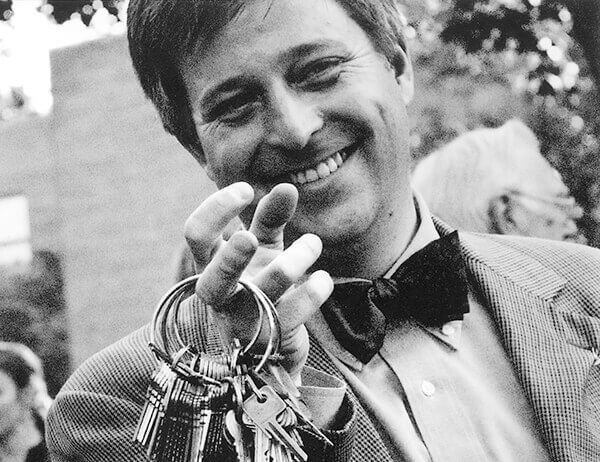 Interim President 2007–2010
Interim President 2007–2010
Matthew Derr ’89 is nationally recognized in higher education for his expertise in leading institutional change and for strengthening mission-based focus. As Interim President he led an alumni effort to revitalize and reopen Antioch College, an effort that raised more than $25 million in giving and transferred assets of over $70 million. In his role at Antioch over three years, he also developed a concept for a new undergraduate curriculum focused on issues related to sustainable agriculture and food systems. In 2011, Derr was awarded a Council for Advancement and Support of Education (CASE) Chief Executive of the Year Award.
After Antioch, Derr became president of Sterling College in Vermont.
Derr holds a BA in History from Antioch College, an MSW in Community Organizing from the University of Michigan, and has further graduate studies at the George S. Heyman Center for Philanthropy at New York University and the Harvard Graduate School of Education.
Before Independence
Presidents and acting presidents or chief administrators of Antioch College
Steven Lawry
Richard Jurasek
Joan Straumanis ’57
Joan Straumanis was the third graduate of Antioch College to be its appointed president. She earned her bachelors degree in both Government and Mathematics in 1957. She holds a MS in Mathematics from the University of Colorado and a PhD in Philosophy from the University of Maryland . She has been a faculty member at American, Denison and Lehigh Universities, and a dean for Kenyon and Rollins Colleges as well as Lehigh. After Antioch she was a program officer in the Fund for the Improvement of Postsecondary Education (FIPSE) in the Office of Postsecondary Education, US Dept. of Education.
Robert H. Devine ’67
Acting President 1996–1998
President 1998–2001
Bob Devine was a longtime professor at Antioch College in the field of film studies and community media (1969-1981; 1988-2008), as well as director of instructional systems (1978-1981). He also served as academic dean from 1992–1995.
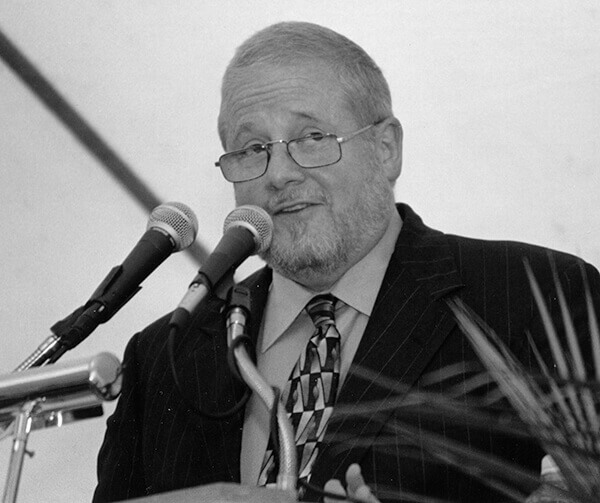 In 2002, Devine was recognized for his contributions to the College as recipient of the Antioch College Alumni Association’s J.D. Dawson Award. And in recognition of his extensive contributions and his unshakeable commitment to Antioch and its values of social justice and community governance, the Board of Trustees honored Devine with the appointment of emeritus professorship in spring 2020.
In 2002, Devine was recognized for his contributions to the College as recipient of the Antioch College Alumni Association’s J.D. Dawson Award. And in recognition of his extensive contributions and his unshakeable commitment to Antioch and its values of social justice and community governance, the Board of Trustees honored Devine with the appointment of emeritus professorship in spring 2020.
Devine was one of the founding faculty members originating Antioch’s nationally known program in critical communications, film, and video, and served as chair of the program a number of times. He has taught film history and theory and the use of media for social change for more than 35 years, and has been actively involved in the fields of community media, public access, and participatory democratic media. His work in this field has involved the start-up of the Dallas, Milwaukee, and Manhattan cable access systems, as well as policy planning, system design, community ascertainment, and system evaluation for a number of access organizations across the country. Devine also served as the Interim Executive Director of Manhattan Neighborhood Network, the largest access facility in the country. Devine served on the Board of Alliance for Community Media, and on the Editorial Board and contributed to Community Media Review for several decades.
Devine received his MA from the State University of New York at Buffalo and his BA from Antioch College.
James E. Crowfoot
President 1994–1996
James Crowfoot earned bachelor’s degrees in Physics (Knox College, 1961) and Theology (Gettysburg Lutheran Theological Seminary, 1965). He received his Ph.D. in Organizational Psychology in 1972 from the University of Michigan. He then joined the faculty of the School of Natural Resources and Environment at Michigan, becoming full professor in 1981 and Dean in 1983. In 1985 he co-founded the UM program in Conflict Management Alternatives, and in 1989 became director of the Scholars Program in Conservation and the Environment for the Pew Charitable Trusts . A president of Antioch College, Crowfoot wa instrumental in the College receiving a three-year grant from the MacArthur Foundation before his controversial resignation in 1996. He remained active in environmental issues such as the sustainable community following his presidency.
Alan E. Guskin
President, Antioch University, 1985–1994
President, Antioch College, 1987–1994
Alan Guskin earned a B.A. in 1958 from Brooklyn College (CUNY) and a Ph.D. in social psychology from the University of Michigan in 1968. As graduate students in 1960 he and Judith Guskin formed a student organization that helped inspire John F. Kennedy to found the Peace Corps. From 1961 to 1964 the Guskins served in Thailand with the first group of Peace Corps volunteers. He served as provost (1971-1973) and acting president (1973-1974) at Clark University and was Chancellor of the University of Wisconsin-Parkside (1975-1985). Guskin completed the closure of less-viable campuses begun under William Birenbaum and added one, The McGregor School in 1993. In 1994 he established the “federal” University structure of five self-governing campuses (of which Antioch College was one prior to Independence) unified under a Chancellor focused on building partnerships between the disparate campuses. Previously the President of Antioch College had oversight of all University branches. Guskin served as the first Chancellor of Antioch University from 1994–1997 and retired as University President Emeritus in 1997 after which he was Distinguished University Professor at Antioch Seattle.
William M. Birenbaum
President 1976–1985
William Birenbaum never earned an undergraduate degree, but enrolled in the Law School of the University of Chicago in 1945 under the “Hutchins Plan,” which allowed admission to any person that passed a rigorous examination process. He received a Doctor of Laws in 1949. Before coming to Antioch he had been Dean of the New School of Social Research and president of Staten Island Community College (CUNY). Under Birenbaum Antioch College reincorporated as Antioch University in 1978 and scaled back much of the expansion that occurred under James Dixon. His presidency weathered numerous financial and governance difficulties, including the near bankruptcy of the institution in 1979.
Robert Levin ’42 and Kay Levin
Acting Administrators, responsibilities shared with Morris Teuton Keeton, 1975–1976
Morris Teuton Keeton
James Payson Dixon ’39
President 1959–1975
James P. Dixon graduated from Antioch College in 1939 and earned his medical degree from Harvard in 1943. Kellogg and Rockefeller
Foundation fellowships in public health administration led to a master’s in hospital administration from Columbia in 1947. In 1948
he entered the public health field as director of Denver General Hospital and in 1952 was made health commissioner for the city of Philadelphia.
Dixon’s presidency transformed Antioch from a small liberal arts college into the diverse, national multi-campus institution that became Antioch University in 1978. He served several US presidents as an advisor on national health issues, including drug abuse, social security, and health education. After his Antioch presidency, Dixon taught at the School of Public Health Administration at the University of North Carolina.
Samuel Brookner Gould
President 1954-1959
Douglas McGregor
President 1948-1954
Algo Donmeyer Henderson
President 1936–1947
Algo Henderson received a bachelor of laws (LLB) from the University of Kansas and his MBA from Harvard. He aspired to public accountancy and held a CPA rating, but in 1925 he was persuaded by Arthur Morgan to join the Antioch faculty as professor of accounting.
Henderson’s Antioch career evolved rapidly into administration; he became business manager within two years and dean of the College by 1930. Forced to take charge when Morgan left Yellow Springs for the TVA in 1934, he was installed as Antioch’s 12th president in 1936.
Under Henderson the College developed the democratic governance principles for which it is renowned.
After leading Antioch out of the Great Depression and through the Second World War, he served on President Truman’s Commission on Higher Education, launching a second career in the study of higher education.
Arthur Ernest Morgan
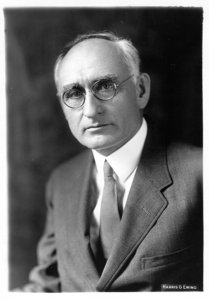 President 1920-1936
President 1920-1936
Arthur E. Morgan (1878-1975), president of Antioch College from 1920 to 1936, was born in Cincinnati, Ohio, and raised in Northern Minnesota. With a formal education limited to just three years of high school and six weeks at the University of Colorado, Morgan seemed an unlikely college president. He had instead received a broad experiential education, as a logger, surveyor, ranch hand, miner, typesetter, and even a beekeeper. It was in his father’s engineering practice, however, that Morgan discovered his calling.
In 1910 he formed Morgan Engineering Company, and he quickly developed a national reputation as a brilliant flood-control engineer. In 1913 he became Chief Engineer of the Miami Conservancy District dam project in Dayton, Ohio, following that city’s historic flood. Ever pragmatic, Morgan devised unorthodox flood control solutions, such as the placement of “dry reservoirs” behind the MCD dams that became public parks and a system of model worker’s settlements, frequently found him at odds with other experts. Despite this his designs most always worked, and in the case of the Miami Valley, it has not flooded since 1913.
As he was also vice president of the American Unitarian Association, he was appointed trustee of Antioch College in 1919 to look after Unitarian interests there. Though not trained as an educator, he had long maintained an interest By 1920 he had formulated a plan for “industrial education” which stressed oncampus study alternated with off-campus work (now the College’s flagship Cooperative Education Program), broad general education, and personal development in the student. His fellow trustees declared him the obvious choice for president, and asked him to take the job. He became a tireless promoter, launching the “New Antioch” into prominence in the national press. He fostered a climate of creativity for Antioch, inviting research concerns such as the Fels Institute for the Study of Human Development to do their work on the campus. Morgan’s entrepreneurial spirit attracted industrialists such as Sergius Vernet of Vernay Laboratories to Yellow Springs and inspired many an Antioch graduate to found businesses that directly serve their own communities.
Though he retained his office until 1936, after 1933 Morgan had little time to concentrate on college affairs, since Franklin D. Roosevelt had appointed him director of the Tennessee Valley Authority, perhaps the most ambitious public works project in human history. Bringing many of the lessons he learned in the Miami Valley, Morgan’s TVA boasted low accident rates, high worker morale, and ingenious solutions to tame the wild Tennessee River. He ran afoul of politics, however, and in 1938 Morgan was fired by FDR for insubordination and returned to Yellow Springs. He maintained a strong interest in Antioch for the rest of his life, serving as a trustee for many years and a perennial lecturer. In retirement he founded Community Service, Inc. (now Community Solutions), to promote recognition and development of the small community, and authored several books.
William Marcus Dawson, Class of 1899
Acting President 1919-1920
George Douglas Black
Acting President 1919-1919
Reverend George Black received his education primarily in the pulpit, and his work in the Christian and Congregational ministry earned him an honorary doctor of divinity from Union Christian College in 1914. From 1892-1920 he served Antioch as a professor (English and
Biblical Literature), college chaplain, vice president, acting president, and as a member of the Board of Trustees (1904-1920). He was thrust into the presidency when Senator Fess resigned due to the pressing needs of his public office.
Black kept Antioch going through the first World War, a time of great difficulty for American colleges, by attracting a unit of the US Students
Army Training Corps. From 1919 until his death in 1932 he wrote “The Farmer’s Sermons,” a regular and widely popular column in The Ohio Farmer.
Simeon Davidson Fess
President 1906-1917
Stephen Frances Weston
Dean 1902-1906
William Allen Bell, Class of 1860
President 1899-1902
Daniel Albright Long
President 1883–1899
Reverend D. A. Long may have been the first Confederate officer (a lieutenant in the North Carolina Home Guards) to be president of a
northern college after the American Civil War. He was also one of Antioch’s longest tenured presidents at sixteen years. Educated at the University of North Carolina (A.M. 1871, D.D. 1886) Long was somewhat aristocratic (he is said to have carried a gold-topped cane and employed four servants in his home), but he spent many of his summers tending the campus grounds by himself when the college couldn’t afford to employ a groundskeeper. An energetic leader, as president he initiated a movement to build a monument to Horace Mann on the Antioch campus and worked with the local chapter of the GAR to establish a memorial tablet honoring the College’s civil war dead.
Orin J. Wait
President 1882-1883
Samuel Carroll Derby
Acting President 1873-1874
President 1876-1881
Edward Orton
President 1872-1873
George Washington Hosmer
President 1866-1872
John Burns Weston, Class of 1857
Acting President 1862–1865, 1876–1877, 1880–1881
The Reverend J.B. Weston, a member of Antioch College’s first graduating class in 1857, remained in Yellow Springs at the request of
Horace Mann to be the Principal of its Preparatory Department. He was a scholar of Greek, a subject he taught in the college until
1881, when he left to become president of the Christian Biblical Institute in Stanfordville, NY. He returned to Ohio when that institution became affiliated with Defiance College in 1902, and he served as president there until his death in 1912. Weston held three interim presidencies at Antioch (two while its operations were suspended, leaving him little more than a caretaker), earning him the nickname “Old Interregnum.”
Austin Craig
Acting President 1862-1864
President 1864-1865
Thomas Hill
The Reverend Thomas Hill was as good a scientist as he was a minister. He graduated from Harvard in 1843 with distinction in mathematics, achieving his divinity degree in 1845. He was the pastor of the Unitarian church in Waltham, MS when he reluctantly agreed to succeed Horace Mann as the second president of Antioch College. There he labored under sectarian and financial difficulties until 1862 when he was appointed president of Harvard. Hill was an accomplished astronomer (as a student he invented an instrument for calculating eclipses) and an enthusiastic gardener (many of the old growth trees on the
Antioch campus date from his tenure). His tendency to turn the soil as a common groundskeeper was considered behavior unbecoming of the President of Harvard.
Horace Mann
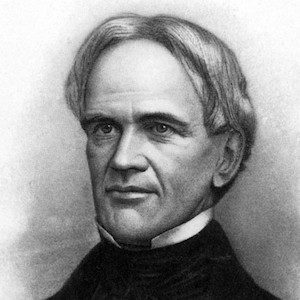 President 1853-59
President 1853-59
Horace Mann was the valedictorian of the Brown University class of 1819 and attended the Tapping Reeve Law School at Litchfield, CT. A successful Boston attorney, he became the first secretary of the first ever state board of education in America for Massachusetts in 1837. His twelve annual reports on education continue to have significance today. In Congress (1848-1852) he worked for internal improvements such as railroads, but is best known for his outspoken opposition to slavery and his intense rivalry with Daniel Webster. Fiercely non-denominational, Mann was attracted to Antioch’s first presidency for its non-sectarian status as much as its revolutionary stance on coeducation. Though he labored under intense difficulties and died in office, Mann left Antioch with a lasting sense of purpose that carries through to the present day.
